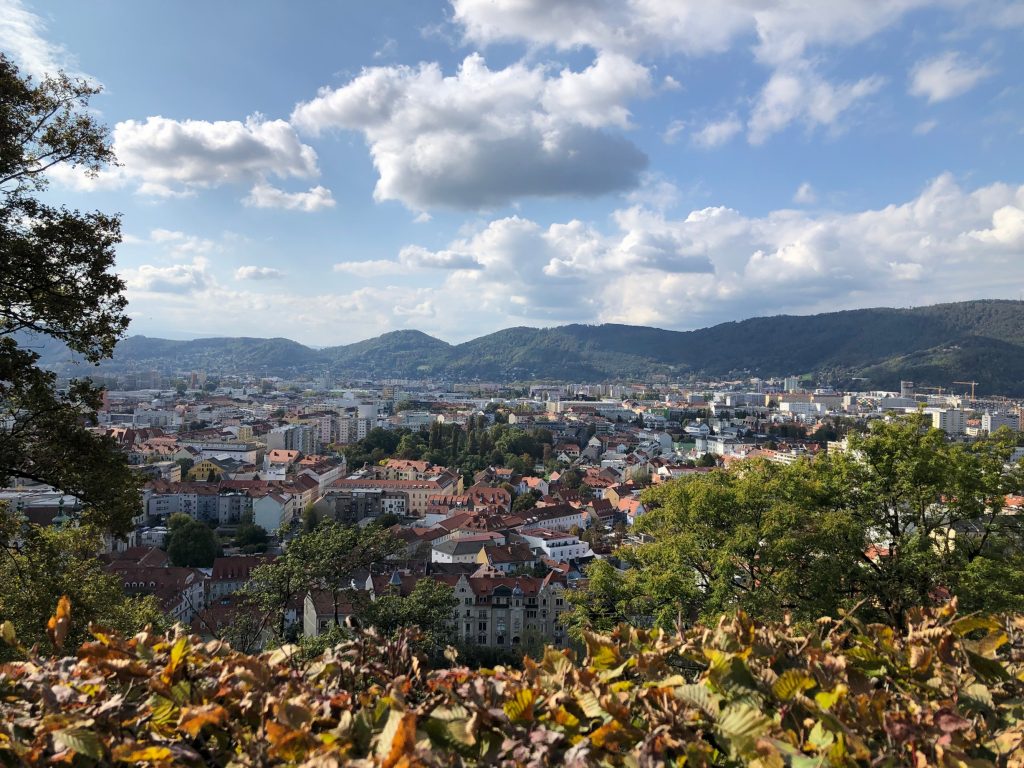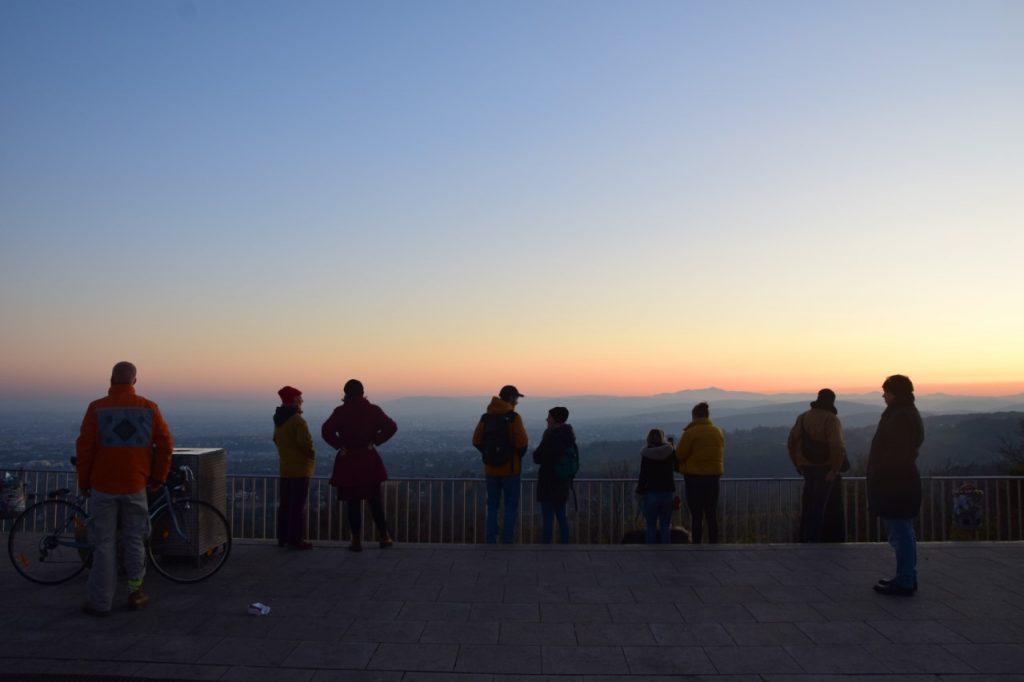In the first in a new series of posts written by undergraduates on their year abroad, third-year Modern Languages student Alice Hopkinson-Woolley (Exeter College) reflects on spending a term in Vienna.

“Not an ideal year to be abroad, eh?” A question I’ve been met with countless times when people ask what I’m doing here in Vienna in the midst of a global pandemic and one to which I always reply: “Or perhaps it is!”
This year, my third studying French and German, was always going to be memorable – full of novelties, challenges and successes – but given the coronavirus situation, I’m hyper-aware of its transience and this incredible opportunity I have to not only travel but live abroad. Granted, lockdown isn’t ideal when you’re trying to explore a new place, maintain fresh friendships and ultimately, practise German. But after 6 months at home, I came out here so raring to go that I’m pretty sure I did more in the first few, blissfully-free weeks than I would have done in the whole 9 months of my stay in any other, normal year.
My dream to live in Vienna pretty much coincided with my decision to study German at University – I came out here on a school trip a few years ago in December and left with all but a finished personal statement. (Whether the Christmas markets, snow and numerous glugs of Glühwein had a role to play, I’ll never know…!)
Arriving here in early September this year was just as exciting, for I experienced and delighted in the city during summer, then watched as autumn arrived and am now writing by an icy window – winter has properly set in. I was lucky to meet lots of new friends in the first few weeks, through a mix of Erasmus events at the Uni, other language assistants and friends of friends (some of whom are from French-speaking Switzerland, here to learn German, and thus provide me ample opportunity to eavesdrop on their French conversations and learn the odd nugget of Swiss slang).

Working as a British Council teaching assistant was the best decision I could have made and although I know it varies from country to country, region to region and certainly school to school, I can relay nothing but positives. Apart, that is, from the horrifically early commute. But then lockdown happened and learning moved online, so really – only positives! Some say it’s futile to be teaching English when I myself am meant to be learning German but the truth is, much more time is spent in the staffroom than the classroom and speaking with the other teachers provides great exposure. What’s more, the job is only 13 hours a week, so really does only take up a small part of my life out here.
So, on to language learning.… Before leaving for Austria I was jovially warned by various tutors and multiple fellow German students: “You know you’ll have to relearn Hochdeutsch for exams after speaking Austrian-German for a year?” Truth be told, I didn’t consider this factor at all when applying and assumed they were just exaggerating, jealous not be spending a year in the land of Kaffee und Kuchen themselves. Although lots of people here do in fact speak Hochdeutsch, initial struggles to understand the dialect left me without train tickets for the first few weeks, unable as I was to make out the ticket seller’s words through both his thick accent and obligatory blue face mask. A couple of months later, and learning new pieces of dialect is a highlight of my daily life here – much to the amusement of the Austrian students I’m living with. Never again will I say “cool” as many Germans do but rather, “leiwand” or even better – “urleiwand” for emphasis! My true favourite however is sadly not that useful in everyday interactions; “Fichtenmoped” (literally, fir-tree-moped) is an upper Austrian word for “chainsaw”. At least it provoked hysterics and won me some cred when I announced my newly acquired word to my students!

It would be remiss of me not to mention the brutal terror attack of November 2nd, the night before our second lockdown. Along with the rest of the population, my friends and I decided to have one final knees up on Monday evening, opting for a pub just south of the city centre. The choice was quick, lazy and barely thought out – we’d been there before, it’s a short walk from the 1st district but far enough that it would likely have free tables. As our final two friends arrived, reporting police on the streets, it was a matter of minutes before the notifications starting coming in. ‘Stay inside and avoid the Innere Stadt’ was the consistent advice.
That Vienna was the target of a terrorist attack is hard to comprehend. As the saying goes, “When the world comes to an end, move to Vienna because everything happens there twenty years later.” Tuesday’s events have clearly shocked the city but (in a clichéd way) certainly united it. The outpouring of solidarity both within the capital and from abroad goes to show how special this place is and that is something which can never be shaken or destroyed. Tributes now stand to the victims in streets I’d walked almost every day and outside pubs I’d sat in just nights before. The newly born motto which has come to express the city’s reaction, summing up the unique dry wit of the Viennese and their fierce loyalty to the city is the phrase screamed in thick Austrian dialect from a man on a balcony to the attacker below: “Schleich di du Oaschloch!” (I’ll leave you to look up the translation for yourselves…) The days following the attack were naturally strange but the city’s response confirmed my admiration and love for this place. Just one day later the 33m Christmas tree was raised outside the town hall and is, to quote Vienna’s mayor, Michael Ludwig “Ein Zeichen des Friedens” (a symbol of peace).

First snow of the year in Stuhleck, 90 minutes by train from Vienna
Austria’s latest lockdown is ending soon and I can’t wait to get back out and explore the city. There are still hundreds of galleries, museums, parks and cafés left on my bucket list, not to mention trips further afield to Salzburg, Hallstatt and Innsbruck to name just a few. A 2020 year abroad was never going to be plain sailing but so far it been pretty urleiwand!
by Alice Hopkinson-Woolley
Editor’s note: You can also follow Alice on her travels by reading her personal blog here.
Image credits all Alice Hopkinson-Woolley.


